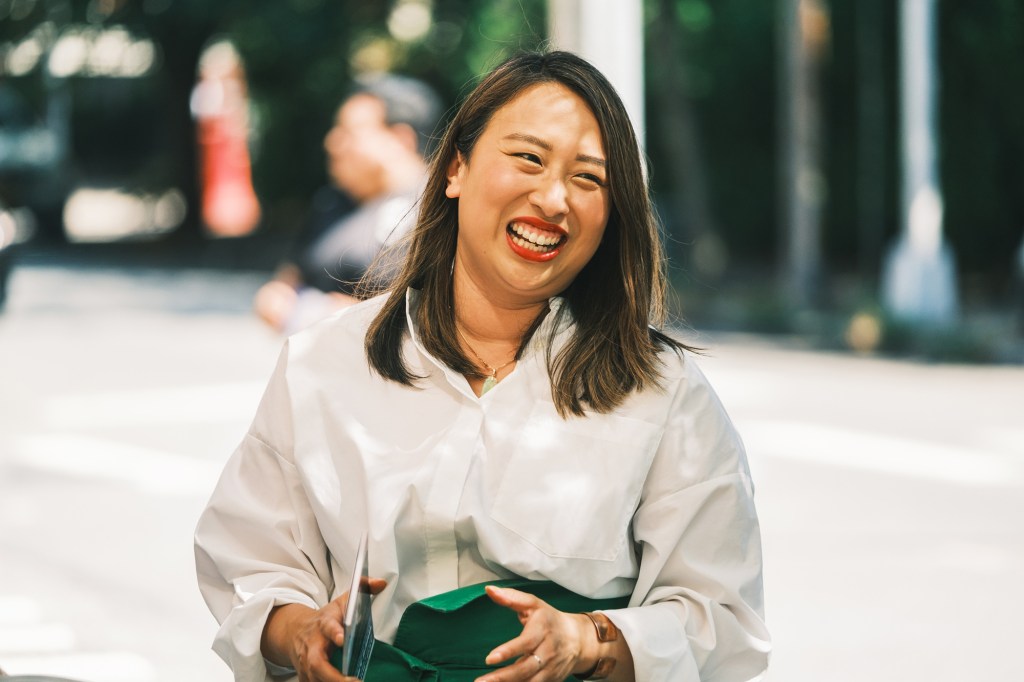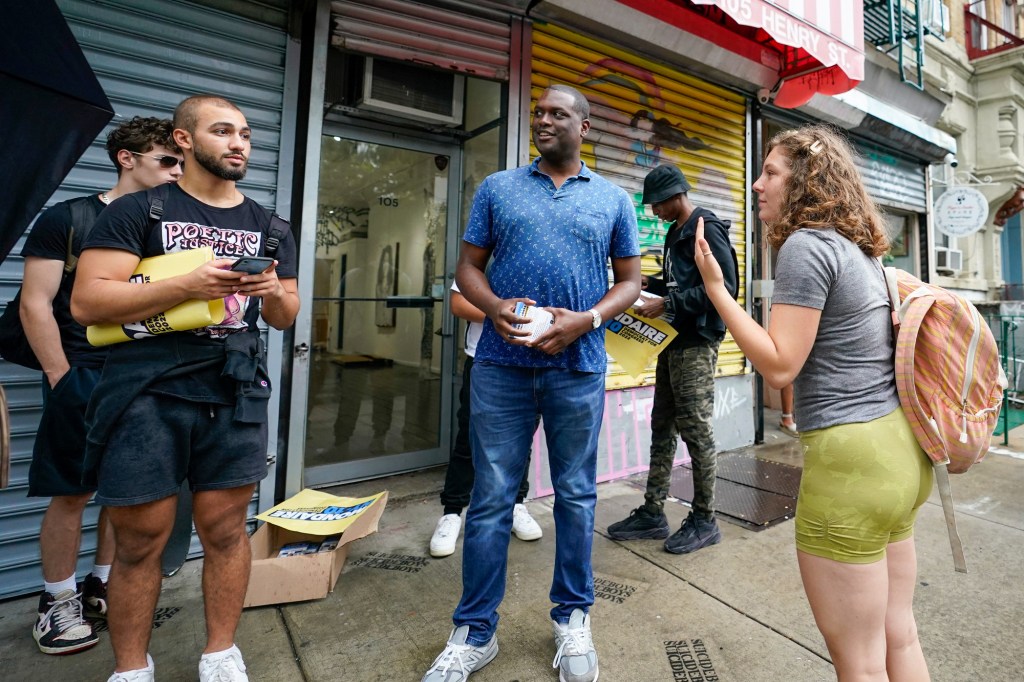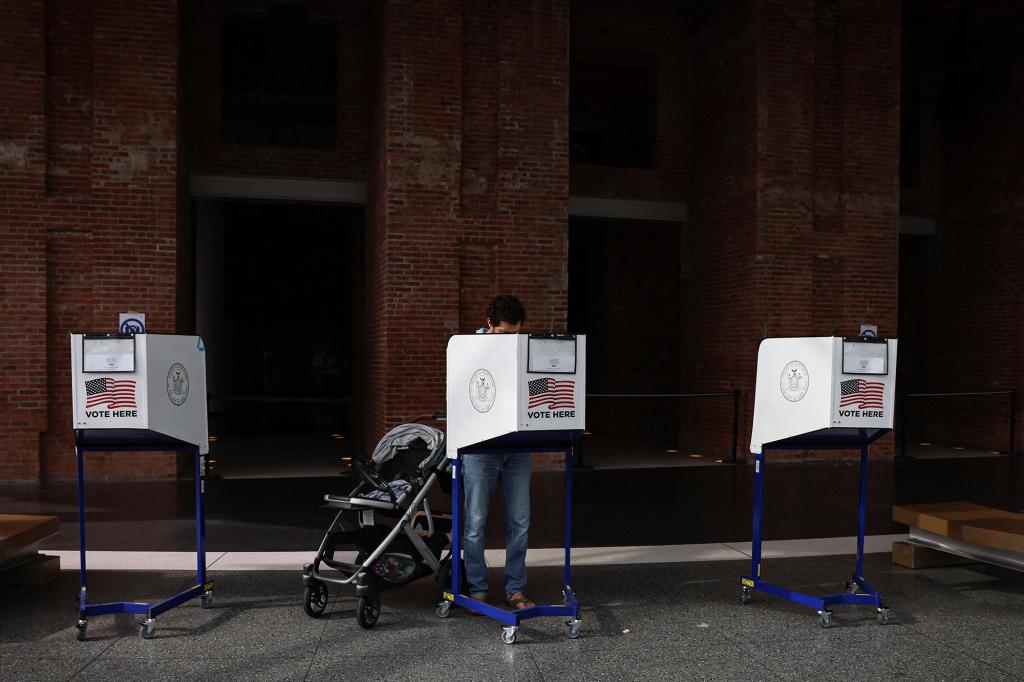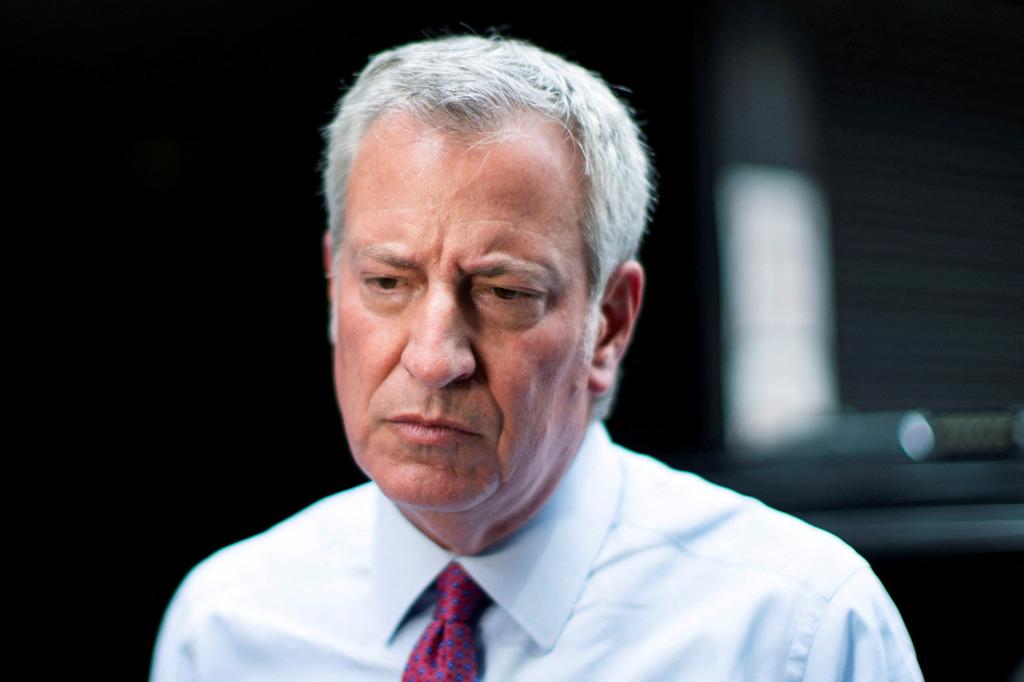Goldman projected for narrow NY-10 win in low-turnout race
Contact The Author
Daniel Goldman was projected to narrowly win his bid to represent much of Lower Manhattan and brownstone Brooklyn in Congress early Wednesday, as unofficial tallies from the Board of Elections showed him with a slim but significant lead of around 1,300 votes over Assemblywoman Yuh-Line Niou.
Goldman held 25.7% of the vote in the 10th District Democratic primary with 98.3% of the scanners reporting, placing him just ahead of Niou’s 23.7% of the vote.
“It is quite clear from the results that have come in that we have won,” Goldman told supporters at his election party in Manhattan, where described the result as a “rebuke of Donald Trump.”
“This has been an inspiring and humbling experience as a first-time candidate,” the political newbie added.
Niou, however, refused to concede at her own election soiree in Brooklyn.
“I know that tonight’s results aren’t yet what we hope to hear, but we will not concede until we count every vote,” Niou told her backers. “We need to make sure that every single vote is counted and we knew it was going to be a close election.”
Rep. Mondaire Jones (D-Hudson Valley) placed third with 18.2% of the vote and was narrowly trailed by Councilwoman Carlina Rivera (D-Manhattan) with 16.9%.
There are potentially still 13,000 absentee ballots remaining in the race as any vote postmarked by the primary election day is valid provided the Postal Service delivers to the Board of Elections within a week.
Still, that 1,300 vote gap will be hard for Niou’s campaign to close.
Earlier Tuesday evening, with the gap at roughly 1,200 votes, veteran political operative Jon Paul Lupo estimated Niou would need to win 34% of the remaining absentees to overcome Goldman’s lead. That would amount to a 42% improvement on her performance among the votes already cast.
Whoever wins the primary is almost assured to win the general election in November as registered Democrats overwhelmingly outnumber Republicans in the district — which covers Manhattan south of 14th Street and major western Brooklyn neighborhoods like Brooklyn Heights, Cobble Hill, Red Hook, Sunset Park and Park Slope.
Turnout was anemic — and does not appear set to exceed 23%, even if all the outstanding absentee ballots are returned, a Post analysis shows.
The results came after a hard-fought two-month campaign, which will likely help shape Big Apple politics for a generation.
It featured a half-dozen high-profile candidates and was replete with recriminations over residency issues, abortion stances, campaign funding and votes about a Manhattan sea wall.
“Clearly we’re going to have a new member of Congress,” said David Birdsell, a professor and longtime observer of New York politics, who now serves as the provost of Kean University in New Jersey.
“You either strengthen the sort of ‘Squad Style’ progressive side of the party, or you strengthen the argument for oversight and comparative centrism in the party,” he added. “It’s going to be very interesting to see what sells over time in a district that is a polyglot as the new 10th.”
The closing days of the sparsely polled race were marked by an apparent surge from Goldman — the lead attorney prosecuting President Trump’s first impeachment trial and an heir to the Levi Strauss fortune — after he scored a surprise endorsement from The New York Times.
That led some liberal and lefty activists to try to pressure other candidates and groups to counter the endorsement and Goldman’s self-funded $4 million campaign by rallying around Niou.
However, those efforts were rebuffed by others who pointed to Niou’s own extensive baggage, including:
- Saying she moved from Harlem and into her now ex-boyfriend’s ritzy apartment in the Financial District because of fears about crime in her old neighborhood — all before running for the Assembly on an anti-police funding platform;
- Offering contradictory positions when asked if she supported the anti-Israel Boycott, Divestment and Sanctions and, in the midst of the firestorm, posted (and quickly deleted) a photo on Instagram that showed her chowing down on challah;
- Opposing or taking steps to block several high-profile infrastructure and housing projects in Lower Manhattan, including the East Side Resiliency sea wall and the Elizabeth Street affordable housing development.
Niou’s opposition to the SoHo senior housing complex led one of Manhattan’s most prominent Asian-American politicians, former Councilwoman Margaret Chin, to endorse Rivera.
“I’m so disappointed in her,” Chin told The Times in August about Niou. “Normally I would support an Asian woman, we need more representation, but in this case…”
In turn, Rivera, who represents the Lower East Side on the City Council, was battered by attacks from local neighborhood activists over her backing of the controversial sea wall project and support for new and taller apartment buildings in the wealthy SoHo neighborhood.
Other heavyweights in the expansive field included Jones, a rising star in the progressive movement who was first elected to represent the Hudson Valley but then chose to find a new district amid the state’s redistricting chaos.
Jones struggled to escape questions about his residency after opting to move to Brooklyn and compete to represent the 10th District — at one point arguing that his fondness in college for West Village LGBT establishments was sufficient.
At another point, he said he couldn’t recall when he moved into the district because “[t]ime is a blur when you’re fighting to end gun violence in America.”
Two longtime Brooklyn politicians also made up the field: Assemblywoman Jo Anne Simon and Elizabeth Holtzman, who had been largely retired from politics following turns in Congress and as Brooklyn District Attorney and city Comptroller.
Former Mayor Bill de Blasio even joined the race for a brief moment but opted to drop out after polling showed he remained deeply unpopular — particularly among white liberals, a powerful political force in the district that he alienated during the last years of his administration.
The mudslinging continued until almost the last minute.
Niou’s campaign was forced to respond to charges of hypocrisy hours before the polls closed after former Comptroller Scott Stringer released an image she sent him of a ballot from last year’s Democratic mayoral primary. The ballot showed Stringer as the first choice, even though Niou pulled her endorsement after Stringer was hit by allegations of sexual misconduct from two women.
Niou’s campaign claimed she had sent Stringer an image of another person’s ballot — and not her own — but refused to say whose it was.
– Additional reporting by Carl Campanile and Bernadette Hogan









